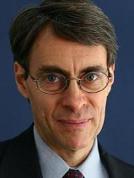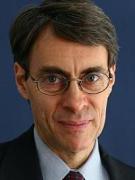What they don’t tell you about Rwanda
Published on 04/10/2009
By Yash Ghai
Rwanda enjoys a positive reputation internationally and its President Paul Kagame is regularly praised by the World Bank, the US, and UK administrations for his integrity, efforts at reconciliation, and economic policies. I was impressed by his advice to Kenyans at the national prayer breakfast last May to follow his government’s example of commitment to ethnic diversity, consensus building on the common good, national values, and inclusion of all political views in national life and development agenda.
When I visited Rwanda at the request of the Commonwealth Human Rights Initiative to do a report on the state of human rights and democracy in Rwanda (in connection with Rwanda’s application to join the Commonwealth) my first impressions, despite some critical reports I had read, were favourable: Very efficient and courteous processing of incoming passengers, a safe, clean and well organised Kigali, and bright and suave officials.
However, I was put on guard when every non-official person I interviewed, diplomats, journalists, professionals, and local and international civil society officers, would not speak to me except on assurances of anonymity.
When I read the constitution, I found no mention of ethnic or religious groups, and came across legislation, which banned discussion of ethnicity (yet huge government posters reminded people of the “genocide against the Tutsi”, although of course many Hutus had also been massacred). Those who imply that Kagame’s Rwanda Patriotic Front had killed Hutus unnecessarily are heavily penalised, as are those who question official accounts of the genocide. This hardly fits with Kagame’s advocacy of reconciliation, inclusion or coming to terms with the past.
Exiled hutus
Reading numerous reports of the UN Security Council, UNHCR or international NGOs, memoirs of some key Rwandan politicians and of the commander of the UN forces Romeo Dallaire, and scholarly literature, I learnt that, though of course the Tutsi had suffered greatly at the hands of a large number of Hutus, the RPF had also killed thousands of Hutus, and driven many to exile (and then pursued them in their countries of exile). Incoming Tutsi have appropriated Hutu owned land. When considered strategic, the RPF allowed the killing of Tutsis. Dallaire writes that their deaths can also be laid “at the door of the military genius, Kagame, who did not speed up his campaign when the scale of genocide became clear and even talked candidly with me at several points about the price his fellow Tutsi might have to pay for the cause”. Kagame refused Dallaire’s proposal to accept ceasefire to stop the massacre, because it did not suit Kagame’s grand design of Tutsi hegemony. He has been quoted as criticising people who see the war in terms of human rights. He has said that some conflicts are good, “a sort of purification” which “erupt in order to make a real transformation possible”.
The Rwanda regime relies on power structures that sometimes run parallel to, and sometimes crosscut, the formal government; and in which the army plays a central role. The country has relied heavily for its revenue (to fund its institutions and elite) on plunder of the mineral resources of the DRC.
Mode of extraction
It bears the primary responsibility for the political and economic instability in the Great Lakes Region (including the overthrow of the Congolese government), which is functional to its mode of extraction of wealth and its regional dominance.
It practises, and has contributed to, a complex, regional regime of illegal economic transactions, evasion of UN sanctions, arming of militias, criminal business organisations, and disregard of neighbours’ borders and fiscal systems, which has greatly impoverished the region.
The RPF has used an extraordinary amount of violence, domestically and internationally. It has killed several thousands Hutus, citizens and others, and is responsible for the deaths of even more through displacement, malnutrition and hunger. It has denied hundreds of thousands of children the opportunity of education, and deprived millions of family and community life. It has conscripted child soldiers. The UN has voluminously documented these practices and repeatedly chastised Rwanda for its irresponsible behaviour in the DRC. Beneath the gentility of RPF leaders, the tidiness of Kigali, and its gleaming high rise buildings, I found a country deeply fragmented, operating under the hegemony of a small Tutsi political elite, which rules through oppression and fear.
Effective Public Relations
I discovered that these leaders are extraordinarily effective at public relations, especially as directed at the West, and make the most of the guilt in the West for doing so little to prevent the terrible genocide in 1994, directed largely but not exclusively at the Tutsi.
[The report of the CHRI can be found at http://www.humanrightsinitiative.org/publications/hradvocacy/rwanda’s_application_for_membership_of_the_commonwealth.pdf%5D
Prof Ghai is a former CKRC Chaiman
Read all about: Rwanda Commonwealth Human Rights Initiative genocide Hutu Tutsi















